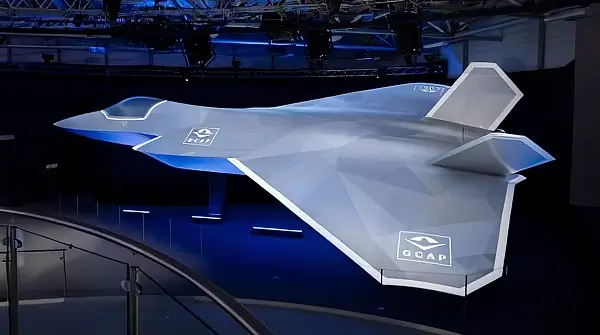The UK’s Defence Science and Technology Laboratory (Dstl) is calling on skilled professionals to join the Future Combat Air System (FCAS) programme, an international initiative aimed at developing the sixth-generation Tempest fighter jet by 2035.
This collaboration with Japan and Italy focuses on integrating advanced technologies to enhance national security and create high-skilled jobs.
Revolutionizing Defence Technology
The FCAS programme represents a significant investment in the UK’s defence technology sector, promising to create numerous high-skilled jobs while fostering innovation in aerospace and software engineering.
By participating in one of the Ministry of Defence’s highest priority programmes, professionals have the opportunity to impact national security and technological leadership significantly.
This initiative also benefits businesses within the UK’s defence supply chain through increased research and development opportunities, as well as collaboration prospects.
The economy stands to gain from sustained industrial growth and export potential, further solidifying the UK’s position as a leader in next-generation combat air technology.
Opportunities for Skilled Professionals
- Specialized roles available in software engineering, complex electronic hardware, and aircrew systems engineering
- Supportive work environment with extensive benefits and training for defence science professionals
- Chance to work on cutting-edge technologies impacting national security
- Collaboration with international partners under the Global Combat Air Programme (GCAP)
- Potential for career advancement within a high-priority MOD programme
A Legacy of Innovation
The FCAS programme builds upon the legacy of previous UK fighter jets like the Eurofighter Typhoon and F-35 Lightning II. These aircraft were pivotal components of the UK’s air defence strategy, showcasing decades of aerospace evolution.
The transition to a sixth-generation fighter reflects advancements in integrating AI, autonomy, and rapid software updates.
The 2022 launch of GCAP formalized international collaboration between the UK, Japan, and Italy. This partnership expands upon earlier alliances formed in 2020, emphasizing shared goals for delivering advanced combat air capabilities by 2035.
Benefits Beyond Defence
- Innovations developed for military aircraft could influence broader UK industrial practices
- Crossover trends seen in civilian industries like automotive manufacturing using robotics and digital twins
- Pioneering advancements may accelerate adoption of advanced manufacturing techniques across sectors
- Potential economic growth driven by high-tech sector developments linked to FCAS innovations
- Strengthened geopolitical ties through trilateral partnerships enhancing collective security among allied nations
Tackling Future Challenges Together
The FCAS programme faces challenges such as technological complexity, ensuring rapid software adaptability, and maintaining international collaboration.
Delivering Tempest by 2035 requires sustained investment alongside skilled workforce development efforts.
Potential risks include delays or budget overruns; however successful execution could secure UK leadership within global aerospace markets while stimulating economic growth across high-tech sectors.
Additional Reading
To Summarize
The Future Combat Air System programme offers exciting opportunities for skilled professionals while advancing UK defence capabilities through international collaboration with Japan and Italy under GCAP.
As this ambitious project progresses towards delivering Tempest by 2035 it promises not only enhanced national security but also significant economic benefits driven by innovation across multiple sectors.
Sources: UK Government, Wikipedia, BAE Systems, Defence Science and Technology Laboratory, and RAF Official Website.
Prepared by Ivan Alexander Golden Founder of THX News™, an independent news organization delivering timely insights from global official sources. Combines AI-analyzed research with human-edited accuracy context.









